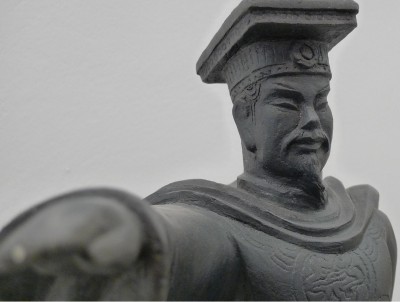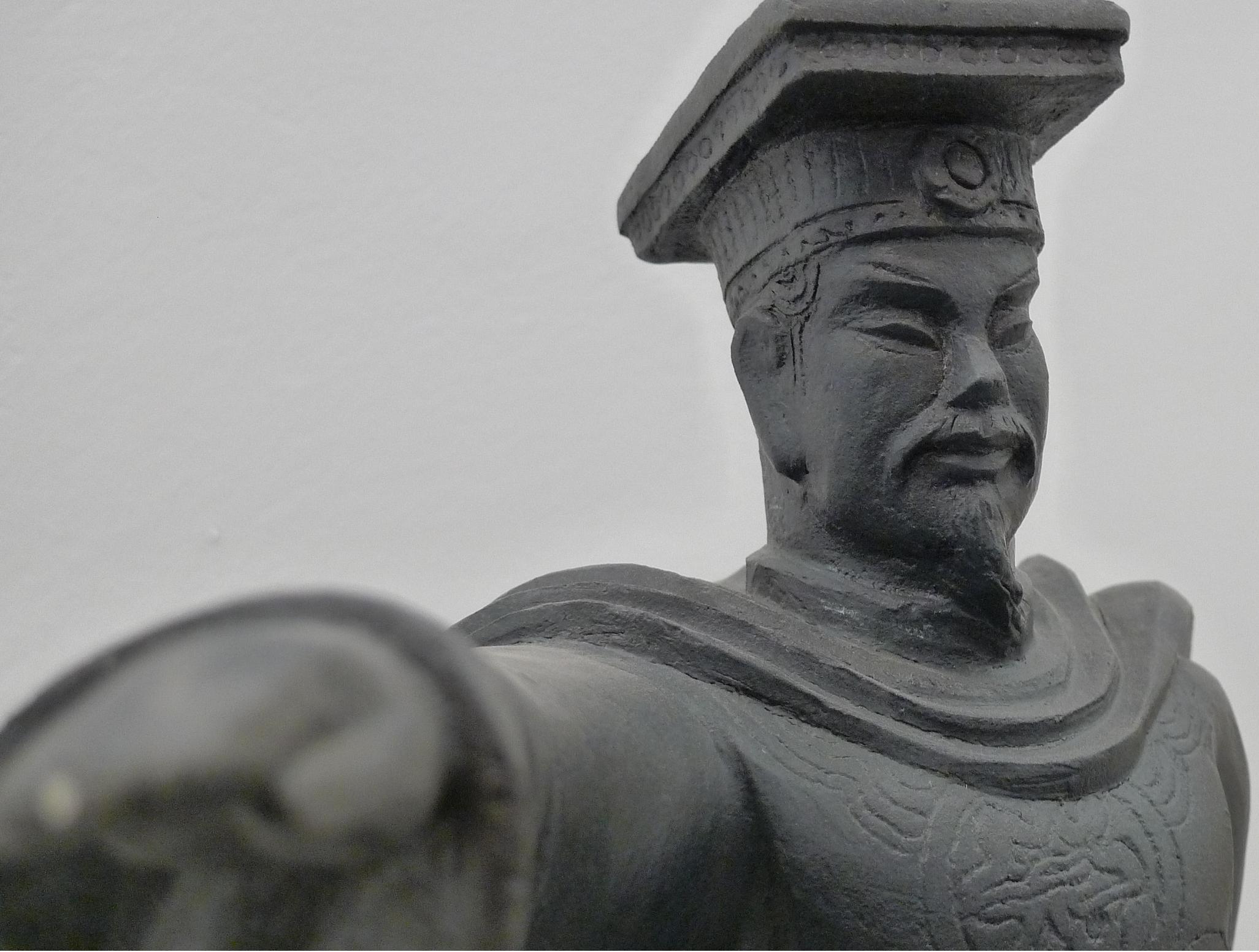LB.com received this today. It was written by a person whose identity cannot be revealed, only to be known as “A Perak Voter”. And the person is not Lord Bobo. It is an important read.
MUCH has been said about the Perak constitutional crisis.
But let us compare this with the purported crisis that erupted in Terengganu soon after the March 8 elections last year.
Before the elections, the previous State Legislative Assembly was dissolved. At the time of the crisis, the new Assembly was yet to be constituted. The result of the elections gave BN a 2/3 majority after winning 24 seats out of 32. The rest of the seats went to PAS.
BN chairman Datuk Seri Abdullah Ahmad Badawi, as is the customary practice, nominated Datuk Seri Idris Jusoh as MB of Terengganu being the State UMNO liason chief. Idris was MB from 2004 up to the time the assembly was dissolved in February before the elections.
 However, the Terengganu Regency Advisory Council, a body exercising the power of the Ruler, rejected Idris’ nomination. The Council, after much deliberation and investigation, appointed Dato’ Ahmad Said as the new MB.
However, the Terengganu Regency Advisory Council, a body exercising the power of the Ruler, rejected Idris’ nomination. The Council, after much deliberation and investigation, appointed Dato’ Ahmad Said as the new MB.
Many would have thought that by rejecting the nomination, the Council had acted unconstitutionally.
But looking at the Constitution of Terengganu, it would not appear to be so.
Firstly, the appointment of an MB is the sole prerogative of the Ruler. This is different from the actions of the Ruler to be executed on the advice of someone.
Secondly, the Constitution provides that the Ruler shall first appoint as MB to preside over the Executive Council a member of the Legislative Assembly who in his judgment is likely to command the confidence of the majority of the members of the Assembly.
It is to be observed here that this incident happened after a general election where the State Legislative Assembly was earlier dissolved to prepare for the general election.
So, at this stage there was no Legislative Assembly for Terengganu as yet.
Before a Legislative Assembly comes into existence after a general election, the head of government must first be ascertained.
This is where the prerogative of the Ruler would be invoked, and the Constitution provides the mechanism for the Ruler to exercise this duty stated above.
At this point of time, the Ruler has to use his better judgment in appointing one.
Once this is done, it is for this appointed head to tender his advice to the Ruler as to the list of his Executive Council. Only when this body is constituted will a new Legislative Assembly be established.
Once this Assembly comes into being, it becomes the forum where members of the Assembly will deliberate, which includes debates to determine the support or otherwise of the majority in power.
However, there was a remedy.
Indeed, if the appointing authority was wrong in its judgment, a vote of no confidence could be taken against Dato’ Ahmad Said at the Assembly sitting, which must convene a meeting within 90 days after the election.
As it is now, the said Assembly is in existence having been constituted after the appointment of the MB and his Executive Council. So far, in Terengganu despite the crisis that occurred earlier, the Executive arm of the State remains led by Dato’ Ahmad Said as no no-confidence vote was ever taken.
If a vote of no confidence was taken and the motion is carried, it means the MB ceases to command the confidence of the majority of the members of the Assembly. Then, unless at his request, the Ruler/Council dissolves the House and a new election be held, he must tender the resignation of the Executive Council including his own.
On this motion of the Assembly, the Ruler would have to resort to the provisions of the Constitution in choosing a new MB and his Executive Council. Failing which, the Assembly would have to be dissolved to pave the way for a fresh election.
Now let us study the Perak case.
Soon after the March 8 election, Pakatan Rakyat (DAP, PKR and PAS) obtained a simple majority after winning 31 seats to BN’s 28 seats.
On March 17, Datuk Mohammad Nizar Jamaludin (from PAS which had only won six seats) was appointed MB.
Here the Ruler correctly applied the spirit of the provision that he shall first appoint as MB to preside over the Executive Council a member of the assembly who in his judgment is likely to command the confidence of the majority of the members of the assembly.
On Feb 4 this year, Deputy Prime Minister Datuk Seri Najib Tun Razak announced that three members (2 from PKR and one from DAP) had defected to BN and the coalition now had the majority to form the Perak government.
The Perak Speaker had ruled that there were casual vacancies for the 3 seats and by-elections to be conducted.
However, the Election Commission refused to hold the polls as it doubted if the 3 had resigned voluntarily.
Be that as it may, Nizar met Sultan Azlan Shah to dissolve the Assembly to pave the way for a election of all 59 seats of the Legislative Assembly. In the meantime, the Sultan met Najib twice in a day on Feb 5.
The Sultan met the 28 BN and 3 defectors who were classified as independents but supportive of BN. The Sultan requested Nizar to tender his resignation and his Executive Council which he refused. It was then implied that Nizar was removed from his position following his defiance.
On Feb 7, Datuk Dr Zambry Abdul Kadir was appointed new MB in place of Nizar by Sultan Azlan Shah.
What should have taken place?
On the surface, it appeared that BN and Pakatan are in deadlock as both have 28 representatives in the Assembly.
The 3 defectors did not join BN but are independents supportive of BN.
The Sultan could have requested Nizar to convene a meeting of the Legislative Assembly to determine whether the MB has ceased to command the confidence of the majority of the members.
This would have also shown whether the BN had the majority to form the government as claimed by Najib.
But this did not happen.
According to the principle enunciated in the case of Stephen Kalong Ningan, the test whether one has lost the confidence or otherwise is to be determined in the House and not outside the House.
There is also the provision in the Perak State Constitution that if the MB ceases to command the confidence of the majority of the members of the Assembly then, unless at his request, the Ruler dissolves the Assembly he shall tender the resignation of the Executive Council.
This is where the Ruler had the discretion to turn down the MB’s request for a dissolution of the House once he had lost the vote of confidence. In that case, Nizar shall tender the resignation of the executive council.
The Sultan could have then repeated the process of appointing a person who in his judgment commands the confidence of the majority.
But there is a problem. The Assembly (the Perak Legislature) and its Speaker are still intact.
From the two case studies, it is humbly submitted that a Ruler has the absolute discretion to:
1) appoint anyone among the elected ADUNs as MB soon after a general election;
2) a vote of confidence must be carried in the House to see whether the incumbent government (executive) had collapsed; and
3) only a MB who had lost the confidence vote could advice the Sultan to dissolve the House but that absolute discretion was in the hands of the Ruler.
In conclusion, due to the peculiarities of the Perak case, it would have been fair and just, to return the mandate to the people and ensure a new government is formed without any obstacle.


In your article, you wrote "…turn down the MB’s request for a dissolution of the House once he had lost the vote of confidence."
When did the 'vote of confidence take place in Perak?". There was no voting. All Najib did was to call a press conference and claimed BN had the majority. Are we saying that govt can change merely by holding press conference? If that is the case, then Pakatan can hold a press conference and say they now have the majority: 28 vs 21. Will the Sultan reappoint them back base on this?
Very nice read. Perak's case only demonstrated political treachery, deceit and underhand tactics to implant a new Exco over the legally constituted one which is still existing.
Sultan's action is very weird, being a constitutional monarch, who doesn't have power to rule. He had acted like an investigator, prosecutor, judge and jury to come to the simple conclusion that the MB ceased to command the confidence of the majority when such action/decision should be left entirely to the Leg. Assy.
And if you read the State consti, it states, ' The Exco(which incl MB) shall be collectively responsible to the Legislative Assy'. The Leg Assy is more powerful than the Sultan who has to act on advice. It is them, in particular the majority members, which practically ruled the state, although in theory it is the Sultan, who shall act on advice and must accept the advice of the Exco. No state funds could be spent without the approval of the Leg Assy.
The crux of the problem, Stop party hopping. let people decide but then money can buy anything which is for sale,including Man.
The sultan has erred in his judgment. The Perak Constitution states quite clearly that the sitting MB can only be removed by the Assembly by a majority vote of no confidence.
So why was there a need to be in the hurry to appoint a new MB?
The process must be allowed to go through and a vacancy for a MB position exists. It is now becoming such an uncalled mess…at the end of the day, all parties will end up losers. So the best and fairest solution is to call for fresh elections and let Perakians decide. The party that wins will get a new mandate from the electorates to rule.
At the moment, BN is not willing to take up the challenge…rather a govt coming from Belakan pintu!
Everyone wanted a new mandate. umno as ever always claiming to have the rakyat's support should go for it. Go thru the front and not the BACK DOOR if you are good enough.